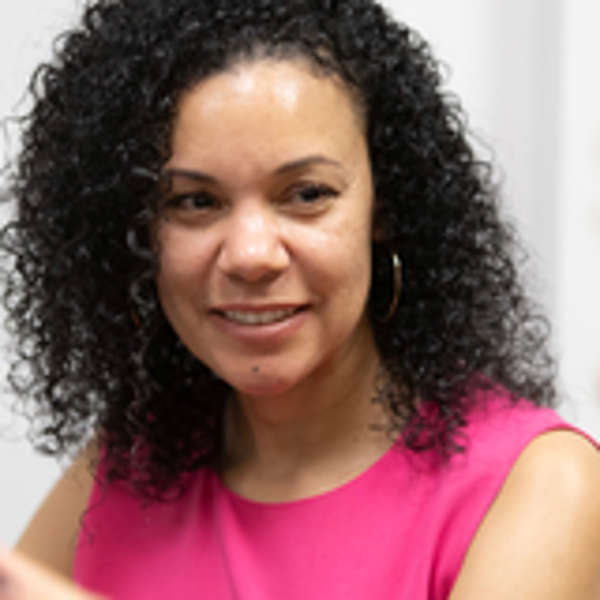Love is not enough, but it does not fail
Dr. Kimberly Offutt, Executive Branch Director, Bethany Christian Services of Georgia

Loss hurts. Unexpected loss cuts deep. Maybe I should have retired my idealistic “Super Mom” cape before we adopted, because my vision of a “happily ever after” adoption needed a major adjustment.
As workers for the state foster care system, my husband and I had seen too many older children enter this revolving-door system and hopelessly linger for years. Families simply were not knocking doors down to adopting a teen with a trauma history. Never ones to back away from a challenge, we decided to open our home to waiting teens.
Expectant love
The process for foster care adoption was straightforward yet time consuming. We finished the references, clearance checks, fingerprints, home visits, and training. We completed interviews filled with hundreds of questions regarding our parenting style, disciplinary technique, status of our marriage, childhood experiences, household routines, support network, and more.
We thought we were ready.
- “Children from hard places have a lot of trauma and loss to work through. Give them time to do that.” Check
- “Don’t expect your adoptive son or daughter to call you Mom and Dad. They already have a family that they lost when they gained you—don’t forget that.” Check
- “They will rebel. They will push you away. They will try to reject you before you can reject them.” Check
- “Love is not enough. The children won’t believe you love them. Their parents loved them and may have hurt them. Now they are living apart. Who are you to tell them you love them?”
Whoa. Wait a minute … love is not enough? I had to wrestle with this one. This statement conflicts with the very fiber of my being. It goes against everything the Bible says about love:
Love is patient, love is kind. It does not envy, it does not boast, it is not proud. It does not dishonor others, it is not self-seeking, it is not easily angered, it keeps no record of wrongs. Love does not delight in evil but rejoices with the truth. It always protects, always trusts, always hopes, always perseveres. Love never fails (1 Corinthians 13:4–8).
I love my children, those I carried in my heart and those I carried in my womb. Four of my children have two sets of parents and four sets of grandparents, but they are still my children. I poured my everything into my kids; I had to, I was in a race against time.
Fierce love
When you adopt a teenager, there’s a clock ticking in the back of your mind, reminding you that you are running out of time.
- “You only have so much time left to impart into them.” Tick, tock.
- “You only have a few years left before they launch into adulthood. Make sure they are ready.” Tick, tock.
- “You didn’t have the privilege of parenting them in their formative years; in so many ways, what you are doing now is redirecting some of their harmful learned behaviors, thought patterns, and beliefs.” Tick, tock.
Unfortunately, while you are racing against time—fighting to ensure that your kids have the best education, opportunities, and family experiences you can offer—your child’s clock may be ticking too. And that could include counting down the time until they are free and in control of their own lives.
They have spent years in foster care where workers, judges, and lawyers made all the decisions about their lives. But wait, you say. As teens, they had to consent to adoption in our family, right? They chose us.
But did they really? Is it possible that our families were a way out of a broken, dysfunctional, and unpredictable system? No matter how much we try to separate ourselves and forget they were a part of that broken system, we will always represent the very system that separated their family of origin in the first place. This is a truth our love alone cannot change.
We expected our kids, as teens, to push us away; but did we did expect them, as young adults, to completely cut us out of their lives? No. The experience made me feel like a total failure as a parent. This was not how it was supposed to be.
But if we put our hurt feelings aside and look through their eyes for a moment, can we understand? Yes.
Resilient love
This is not the journey of every parent, but it can happen. It’s possible that our kids—whether born to us or adopted by us—will grow into adulthood and choose to step away from our families for a while. It hurts, but we can’t take it personally. A wise worker once said, “It’s not about you.” It’s not a result of something you did nor is it something you can prevent. This is their journey, and all we can do is be there for them, even through rocky teen and adult years.
I have hope that it will not always be this way. I’ve spoken with several adoptive families who’ve experienced the loss and rejection of an adoptive adult son or daughter. Their resolve about their current situation has one common thread that encourages me: the resilience of love.
“She knows I love her. No matter what, she will always have a family.” Connie W.
“It’s hard not knowing where he is and how he’s doing. But God knows; He loved him first.” Jean G.
“I keep wondering if I was too strict or overbearing. I only wanted to protect her from being hurt more. I hope she knows how much I love her.” Jenny L.
“He’s my son. Of course, I’m going to be right here waiting on him to come back home.” Jessie K.
Love always protects. Love always trusts. Love always hopes. Love always perseveres. Love never fails.



